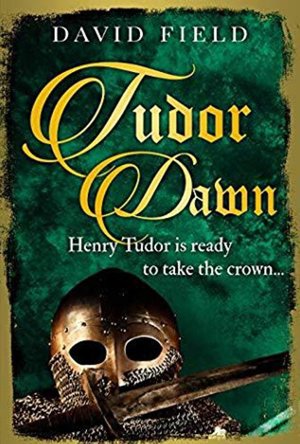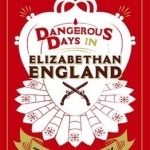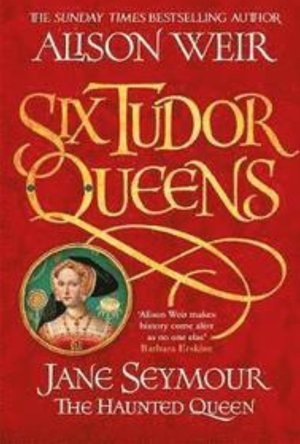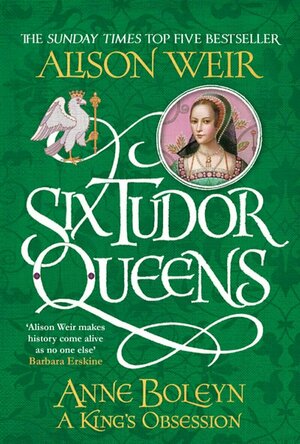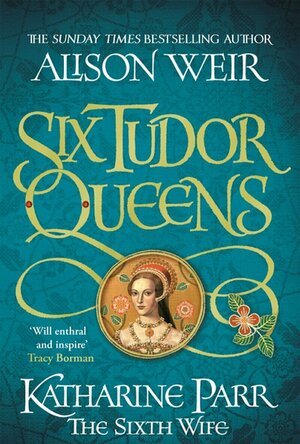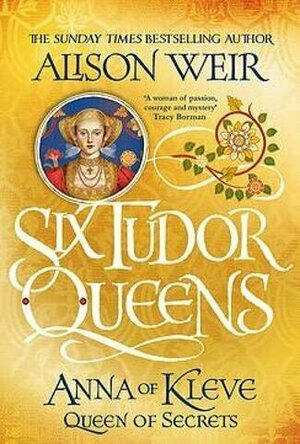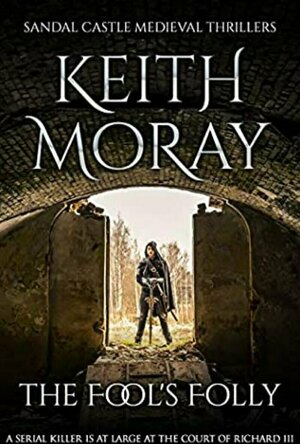Search
Search results
Chris Hooker (419 KP) rated Building Love in Books
May 29, 2018
This is a sweet story that also deals with some difficult issues. The main characters were developed and their stories plausible. The fact that both had to deal with bullying from the same family might seem unbelievable to some readers but if you grew up as the poor kid in a small town it is very realistic. I was a bit surprised by the ages of the main characters because just reading the description made it seem they were adults. That said I will read more by Tudor and this is a quick, enjoyable read.
Deborah (162 KP) rated The Queen's Promise in Books
Dec 21, 2018
Yes, it's another Tudor historical novel and yes, it's another Tudor historical novel about Anne Boleyn!
This one I think is worth reading though. Although Anne carries one of the main narrative threads the book is really more about Henry Percy, 6th Earl of Northumberland, who had some sort of understanding with Anne before she caught the eye of that other Henry. I don't think his life is as well documented as other more prominent figures at court, but there is enough information there to give a foundation to his story. Our other main character is Will Chatton, who, along with his wife, is a fictional character created to give us a broader view of Tudor society and to assist Henry Percy and move the narrative along. Will is also friends in the novel with Robert Aske, who was a real historical figure.
Henry Percy has not generally been given much prominence, even in fiction, so this was a new angle, drawing out his character. His is not really a happy story, but he is certainly a sympathetic character and the author uses the forced break up of their relationship as a sort of catalyst for the change in Anne's behaviour to a harder outlook, so the reader can still sympathise with her. One thing that does puzzle me in 'real' history, and which I feel the author didn't convincingly explain in her own narrative, was why it was found necessary to break up Anne and Henry's relationship? That point aside, I thought this was a good read and a bit different to the usual court focused novels.
This one I think is worth reading though. Although Anne carries one of the main narrative threads the book is really more about Henry Percy, 6th Earl of Northumberland, who had some sort of understanding with Anne before she caught the eye of that other Henry. I don't think his life is as well documented as other more prominent figures at court, but there is enough information there to give a foundation to his story. Our other main character is Will Chatton, who, along with his wife, is a fictional character created to give us a broader view of Tudor society and to assist Henry Percy and move the narrative along. Will is also friends in the novel with Robert Aske, who was a real historical figure.
Henry Percy has not generally been given much prominence, even in fiction, so this was a new angle, drawing out his character. His is not really a happy story, but he is certainly a sympathetic character and the author uses the forced break up of their relationship as a sort of catalyst for the change in Anne's behaviour to a harder outlook, so the reader can still sympathise with her. One thing that does puzzle me in 'real' history, and which I feel the author didn't convincingly explain in her own narrative, was why it was found necessary to break up Anne and Henry's relationship? That point aside, I thought this was a good read and a bit different to the usual court focused novels.
ClareR (6059 KP) rated Tudor Dawn: Henry Tudor is ready to take the crown (The Tudor Series Book 1) in Books
Jul 2, 2019
A really interesting history!
I really liked this - I’ve not read much about Henry Tudor, and everyone is always much more interested in Henry VIII and his promiscuous love life! Henry Tudor isn’t like his son at all. He may well have enjoyed the company of women, but David Field doesn’t play on that fact. I learnt so much about the history of Henry’s upbringing and subsequent escape into exile - and it is a vey male dominated book. We don’t see much of what his mother would have been doing, but we do learn about her hard work on his behalf.
I hadn’t realised that he’d been such a sickly child and that some of these problems followed him in to adulthood, or that he actually seemed to love his queen (although that may well be fictionalised - but I’d like to know!). This first book in the series takes up to Henry VII’s death. I think I will be reading the next in the series.
What I really liked about this book was that it’s more history than fiction. It’s not dry, academic type history though, and that’s what really drew me in.
Many thanks to Sapere Books for my copy of this book to read and honestly review. I really enjoyed it.
I hadn’t realised that he’d been such a sickly child and that some of these problems followed him in to adulthood, or that he actually seemed to love his queen (although that may well be fictionalised - but I’d like to know!). This first book in the series takes up to Henry VII’s death. I think I will be reading the next in the series.
What I really liked about this book was that it’s more history than fiction. It’s not dry, academic type history though, and that’s what really drew me in.
Many thanks to Sapere Books for my copy of this book to read and honestly review. I really enjoyed it.
Deborah (162 KP) rated Dangerous Days in Elizabethan England: Thieves, Tricksters, Bards and Bawds in Books
Dec 19, 2018
Quite amusing in places, but there were some errors - Henry VIII's will did in fact reinstate Mary and Elizabeth and after that went for the descendants of younger sister Mary (the Greys) over older sister Margaret (the Scottish line). It was Edward's Device for the Succession which looked to overturn that.
There was some off-beat facts thrown in, but would have been nice to have some explanation too. It mentions a fine if you sold the meat of a Bull without it having been baited but doesn't explain why (this might have driven me mad, but I had just read Ruth Goodman's How to be a Tudor, which explains about how they believed this would tenderise the meat! I highly recommend the book!).
There was some off-beat facts thrown in, but would have been nice to have some explanation too. It mentions a fine if you sold the meat of a Bull without it having been baited but doesn't explain why (this might have driven me mad, but I had just read Ruth Goodman's How to be a Tudor, which explains about how they believed this would tenderise the meat! I highly recommend the book!).
ClareR (6059 KP) rated Jane Seymour: The Haunted Queen in Books
May 3, 2018
Tudor England at it's best!
Everyone knows the stories of Henry VIII and his six wives, don't they? Jane Seymour always seems to be the quietest, almost childlike, always doing as she's told. This novel paints a very different picture of her. She is a young woman of her time: obedient to her parents and the males in her family, religious, and ready to do her part as a woman (and that means bearing children!).
This novel looks at how she probably wasn't as innocent as we have always been led to believe. In all honesty, she lived at court - a place where family loyalties and wealth were above all else in importance: she couldn't afford to be an innocent.
I like the Jane that Weir portrays. She's resilient and cares deeply about her family and HER Queen (Katherine of Aragon). I really liked this book and all of the courtly intrigues: Tudor England has always fascinated me. It was such a sad end for Jane, and the authors extended notes at the end really explained well what she and some experts thought had really happened to her and why she died (heres a clue: it wasn't childbirth). I will be going back to the first two books in this series to read about Katherine of Aragon and Anne Boleyn in preparation for Katherine Howard (wife #4 - and that should be a good one!!).
This novel looks at how she probably wasn't as innocent as we have always been led to believe. In all honesty, she lived at court - a place where family loyalties and wealth were above all else in importance: she couldn't afford to be an innocent.
I like the Jane that Weir portrays. She's resilient and cares deeply about her family and HER Queen (Katherine of Aragon). I really liked this book and all of the courtly intrigues: Tudor England has always fascinated me. It was such a sad end for Jane, and the authors extended notes at the end really explained well what she and some experts thought had really happened to her and why she died (heres a clue: it wasn't childbirth). I will be going back to the first two books in this series to read about Katherine of Aragon and Anne Boleyn in preparation for Katherine Howard (wife #4 - and that should be a good one!!).
Lyndsey Gollogly (2893 KP) rated Anne Boleyn: A Kings Obsession (Six Tudor Queens #2) in Books
Oct 10, 2021
165 of 250
Book
Anne Boleyn:A Kings Obsession (Six Tudor Queens book 2)
By Alison Weir
Once read a review will be written via Smashbomb and link posted in comments
Anne Boleyn: A King's Obsession by bestselling historian Alison Weir, author of Katherine of Aragon: The True Queen, is the second captivating novel in the Six Tudor Queens series. An unforgettable portrait of the ambitious woman whose fate we know all too well, but whose true motivations may surprise you. Essential reading for fans of Philippa Gregory and Elizabeth Chadwick.
'Offers a spellbinding solution to the mystery of Anne's true nature . . . Enthralling' Sarah Gristwood
The young woman who changed the course of history.
Fresh from the palaces of Burgundy and France, Anne draws attention at the English court, embracing the play of courtly love.
But when the King commands, nothing is ever a game.
Anne has a spirit worthy of a crown - and the crown is what she seeks. At any price.
ANNE BOLEYN. The second of Henry's Queens. Her story.
History tells us why she died. This powerful novel shows her as she lived.
I absolutely love how this author writes! I was hooked from the start with this book. Anne Boleyn is one of those women who started with such good intentions but then became all dark and twisted! I have zero sympathy for how her life played out but found her story totally captivating. This is definitely a series worth reading!
Book
Anne Boleyn:A Kings Obsession (Six Tudor Queens book 2)
By Alison Weir
Once read a review will be written via Smashbomb and link posted in comments
Anne Boleyn: A King's Obsession by bestselling historian Alison Weir, author of Katherine of Aragon: The True Queen, is the second captivating novel in the Six Tudor Queens series. An unforgettable portrait of the ambitious woman whose fate we know all too well, but whose true motivations may surprise you. Essential reading for fans of Philippa Gregory and Elizabeth Chadwick.
'Offers a spellbinding solution to the mystery of Anne's true nature . . . Enthralling' Sarah Gristwood
The young woman who changed the course of history.
Fresh from the palaces of Burgundy and France, Anne draws attention at the English court, embracing the play of courtly love.
But when the King commands, nothing is ever a game.
Anne has a spirit worthy of a crown - and the crown is what she seeks. At any price.
ANNE BOLEYN. The second of Henry's Queens. Her story.
History tells us why she died. This powerful novel shows her as she lived.
I absolutely love how this author writes! I was hooked from the start with this book. Anne Boleyn is one of those women who started with such good intentions but then became all dark and twisted! I have zero sympathy for how her life played out but found her story totally captivating. This is definitely a series worth reading!
Lottie disney bookworm (1056 KP) rated Six Tudor Queens: Katharine Parr, The Sixth Wife in Books
Mar 23, 2021
I have been reading Alison Weir books since I was a teenager so imagine how much I fangirled when I was given the opportunity to read an advanced copy of her final book in the Tudor Queens series!
To Netgalley and Headline, thank you, thank you, thank you!
It is my opinion that Katharine Parr is often the most overlooked of Henry VIII's wives: indeed most novels focus only on her life after becoming Queen. That is why this novel from Alison Weir was simply brilliant.
Weir introduces us to Katharine Parr as a girl, constantly surrounded by family and, after losing her father at a young age, being brought up by her uncle, aunt and her mother who was an attendant to Queen Katharine of Aragon.
The reader instantly falls in love with Katharine, an intelligent, caring child who is acutely aware of her eventual duty to her family but desperately wishes to remain in her carefree days with her siblings.
As we know, Tudor girls married young and Weir explores each of Katharine's four marriages in great detail: combining historical fact and storytelling in the way that only she can.
It struck me that, in three of Katharine's four marriages, she was used as a pawn, marrying for rank, power and connections as was the norm at the time.
However, in every one of these marriages Katharine was able to find love; even when marrying an old overweight Henry, already famous for disposing of numerous wives.
The writing during each of these marriages is rarely emotional: Katharine is a very rational and practical character, only showing real passion for religion. She is even super calm when she believes she is being investigated as a heretic!
It isn't until Katharine's fourth and final marriage that she marries for herself and for love. The passionate relationship between Katharine and Tom Seymour seeps into the writing at this point: introducing jealousy and anger where there has previously been merely a stoic resolve.
The fact that this novel spans the lifespan of Henry's marriages is fitting and really allows Weir to paint a picture of Tudor society throughout the religious reforms and upheavals associated with its monarch.
No one who has read Alison Weir's books before will be surprised that this is yet another success. Together with Philippa Gregory, Weir is a Queen of historical fiction and this novel is only the latest jewel in her crown.
To Netgalley and Headline, thank you, thank you, thank you!
It is my opinion that Katharine Parr is often the most overlooked of Henry VIII's wives: indeed most novels focus only on her life after becoming Queen. That is why this novel from Alison Weir was simply brilliant.
Weir introduces us to Katharine Parr as a girl, constantly surrounded by family and, after losing her father at a young age, being brought up by her uncle, aunt and her mother who was an attendant to Queen Katharine of Aragon.
The reader instantly falls in love with Katharine, an intelligent, caring child who is acutely aware of her eventual duty to her family but desperately wishes to remain in her carefree days with her siblings.
As we know, Tudor girls married young and Weir explores each of Katharine's four marriages in great detail: combining historical fact and storytelling in the way that only she can.
It struck me that, in three of Katharine's four marriages, she was used as a pawn, marrying for rank, power and connections as was the norm at the time.
However, in every one of these marriages Katharine was able to find love; even when marrying an old overweight Henry, already famous for disposing of numerous wives.
The writing during each of these marriages is rarely emotional: Katharine is a very rational and practical character, only showing real passion for religion. She is even super calm when she believes she is being investigated as a heretic!
It isn't until Katharine's fourth and final marriage that she marries for herself and for love. The passionate relationship between Katharine and Tom Seymour seeps into the writing at this point: introducing jealousy and anger where there has previously been merely a stoic resolve.
The fact that this novel spans the lifespan of Henry's marriages is fitting and really allows Weir to paint a picture of Tudor society throughout the religious reforms and upheavals associated with its monarch.
No one who has read Alison Weir's books before will be surprised that this is yet another success. Together with Philippa Gregory, Weir is a Queen of historical fiction and this novel is only the latest jewel in her crown.
Lyndsey Gollogly (2893 KP) rated Anna of Kleve: Queen of Secrets ( Six Tudor Queens book 4) in Books
Dec 30, 2021
213 of 250
Book
Anna of Kleve: Queen of Secrets ( Six Tudor Queens book 4)
By Alison Weir
Once read a review will be written via Smashbomb and link posted in comments
Newly widowed and the father of an infant son, Henry VIII realizes he must marry again to ensure the royal succession. Forty-six, overweight, and suffering from gout, Henry is soundly rejected by some of Europe's most eligible princesses. Anna of Kleve, from a small German duchy, is twenty-four, and has a secret she is desperate to keep hidden. Henry commissions her portrait from his court painter, who depicts her from the most flattering perspective. Entranced by the lovely image, Henry is bitterly surprised when Anna arrives in England and he sees her in the flesh. Some think her attractive, but Henry knows he can never love her.
What follows is the fascinating story of an awkward royal union that somehow had to be terminated. Even as Henry begins to warm to his new wife and share her bed, his attention is captivated by one of her maids-of-honor. Will he accuse Anna of adultery as he did Queen Anne Boleyn, and send her to the scaffold? Or will he divorce her and send her home in disgrace? Alison Weir takes a fresh and astonishing look at this remarkable royal marriage by describing it from the point of view of Queen Anna, a young woman with hopes and dreams of her own, alone and fearing for her life in a royal court that rejected her almost from the day she set foot on England’s shore.
Book
Anna of Kleve: Queen of Secrets ( Six Tudor Queens book 4)
By Alison Weir
Once read a review will be written via Smashbomb and link posted in comments
Newly widowed and the father of an infant son, Henry VIII realizes he must marry again to ensure the royal succession. Forty-six, overweight, and suffering from gout, Henry is soundly rejected by some of Europe's most eligible princesses. Anna of Kleve, from a small German duchy, is twenty-four, and has a secret she is desperate to keep hidden. Henry commissions her portrait from his court painter, who depicts her from the most flattering perspective. Entranced by the lovely image, Henry is bitterly surprised when Anna arrives in England and he sees her in the flesh. Some think her attractive, but Henry knows he can never love her.
What follows is the fascinating story of an awkward royal union that somehow had to be terminated. Even as Henry begins to warm to his new wife and share her bed, his attention is captivated by one of her maids-of-honor. Will he accuse Anna of adultery as he did Queen Anne Boleyn, and send her to the scaffold? Or will he divorce her and send her home in disgrace? Alison Weir takes a fresh and astonishing look at this remarkable royal marriage by describing it from the point of view of Queen Anna, a young woman with hopes and dreams of her own, alone and fearing for her life in a royal court that rejected her almost from the day she set foot on England’s shore.
Deborah (162 KP) rated Richard III: The King in the Car Park in Books
Dec 21, 2018
I quote from the final page of this publication: "The writer of this book will face similar virulent criticism. It will be savaged in the book reviews on Amazon, mainly by non-readers, to take its ratings and thus popularity down." In fact, this is the last, but by no means the only rant by the author who appears to have a definite chip on his shoulder for some reason. Since he subjects Thomas Penn's work, 'The Winter King' to such virulent criticism, one can only suspect that he was turned down by Penn's publisher. One can hardly be surprised. I have read this book, despite wanting on a number of occasions to give up in disgust. It is full of errors of spelling (e.g. youngest for younger, now instead of not), so has evidently not had either a proof reader or an editor. There are also many factual errors with names and titles becoming hopelessly confused. On one page we're told that Sir James Tyrell was hanged and a couple of pages later we're told that Henry Tudor was so kind as to merely condescend to cut his head off!
I will admit that with pro-Ricardian sympathies I was probably never going to like this book, but it is a bit of a mess and feels like another case of jumping on the bandwagon. There is no index, no footnotes/endnotes and only a partial list of sources, which is enough to raise questions about academic rigour. If you are going to publish opinions, particular in The Great Debate, these really should be backed up by factual evidence. I think I am most irked by the hypocrisy of Mr Breverton telling us at one point that he is going to take a fresh impartial look at the subject and then immediately showing us exactly which colour he prefers his roses.
His list, near the back of the volume, of all the 'crimes' he thinks Richard III was guilty of really does teeter on the brink of blindness and absurdity. Apparently he is guilty in the case of the Earl of Warwick, son of Richard's older brother, George of Clarence, but whose claim to the throne was barred by his father's attainder (always reversible, but Warwick was then only a child of about 8 years). I'm pretty sure this Warwick was sent to Sheriff Hutton Castle to be brought up with other young persons, as befitted his status by Richard. Of course, as soon as Henry Tudor usurped the throne, this boy was locked up in the Tower only to be executed later on a trumped up charge. I think I know who the guilty party is in that case.
That is my frank opinion on this volume; I will now expect said author to savage me as he has everyone else on Amazon who has pointed out the self-evident shortcomings in this work.
I will admit that with pro-Ricardian sympathies I was probably never going to like this book, but it is a bit of a mess and feels like another case of jumping on the bandwagon. There is no index, no footnotes/endnotes and only a partial list of sources, which is enough to raise questions about academic rigour. If you are going to publish opinions, particular in The Great Debate, these really should be backed up by factual evidence. I think I am most irked by the hypocrisy of Mr Breverton telling us at one point that he is going to take a fresh impartial look at the subject and then immediately showing us exactly which colour he prefers his roses.
His list, near the back of the volume, of all the 'crimes' he thinks Richard III was guilty of really does teeter on the brink of blindness and absurdity. Apparently he is guilty in the case of the Earl of Warwick, son of Richard's older brother, George of Clarence, but whose claim to the throne was barred by his father's attainder (always reversible, but Warwick was then only a child of about 8 years). I'm pretty sure this Warwick was sent to Sheriff Hutton Castle to be brought up with other young persons, as befitted his status by Richard. Of course, as soon as Henry Tudor usurped the throne, this boy was locked up in the Tower only to be executed later on a trumped up charge. I think I know who the guilty party is in that case.
That is my frank opinion on this volume; I will now expect said author to savage me as he has everyone else on Amazon who has pointed out the self-evident shortcomings in this work.
ClareR (6059 KP) rated The Fool’s Folly in Books
Jun 9, 2020
The Fool’s Folly is set in 1485 in Yorkshire, England, when King Richard III has been on the throne for two years. It must have been a very unsettling time to live in: not knowing whether your King has murdered his nephews, not knowing how much longer the King will actually keep the throne (Henry Tudor was a very real threat at this time), and not knowing what your fate will be if you chose the wrong side!
This story is set at Sandal Castle, the seat of John de la Pole, King Richard’s heir (and now it becomes clear why Henry VIII wanted to get rid of the de la Pole family!). De la Pole’s jester is murdered, and the newly appointed judge, Sir Giles Beaton, is asked to get to the bottom of the mystery. What starts out as a seemingly open and shut case, ends up being the start of a killing spree. Giles has to wonder if the deaths are connected, and whether this has something to do with a plot against the King and his heir.
It’s a bit gruesome at points - I liked this, I will admit. Medieval postmortems wouldn’t have been for the more sensitive observer (or reader!), I’m sure. I do have a bit of a thing for historical fiction, and a newly developed respect for crime and mysteries. I appreciate the attention to detail, and the research that must have occurred in writing this book, it feels very authentic.
I haven’t read the first book in this series, but it didn’t affect my reading enjoyment at all. In fact it has made me want to read the first in the series as well!
Many thanks to Sapere Books for sending me a copy of this book to read and review!
This story is set at Sandal Castle, the seat of John de la Pole, King Richard’s heir (and now it becomes clear why Henry VIII wanted to get rid of the de la Pole family!). De la Pole’s jester is murdered, and the newly appointed judge, Sir Giles Beaton, is asked to get to the bottom of the mystery. What starts out as a seemingly open and shut case, ends up being the start of a killing spree. Giles has to wonder if the deaths are connected, and whether this has something to do with a plot against the King and his heir.
It’s a bit gruesome at points - I liked this, I will admit. Medieval postmortems wouldn’t have been for the more sensitive observer (or reader!), I’m sure. I do have a bit of a thing for historical fiction, and a newly developed respect for crime and mysteries. I appreciate the attention to detail, and the research that must have occurred in writing this book, it feels very authentic.
I haven’t read the first book in this series, but it didn’t affect my reading enjoyment at all. In fact it has made me want to read the first in the series as well!
Many thanks to Sapere Books for sending me a copy of this book to read and review!


